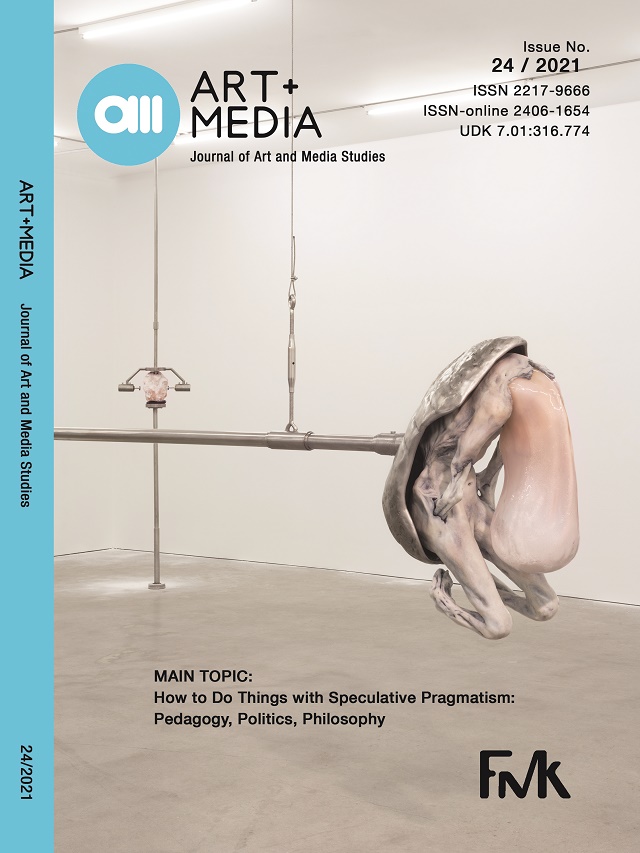The Bauhaus Viewed from the Perspective of Jacques Rancière’s Theoretical Concept of the Aesthetic Revolution
The Bauhaus Viewed from the Perspective of Jacques Rancière’s Theoretical Concept of the Aesthetic Revolution
Author(s): Aleksandra VujovićSubject(s): Architecture
Published by: Fakultet za medije i komunikacije - Univerzitet Singidunum
Keywords: art; aesthetics; politics; distribution of the sensible; aesthetic regime; aesthetic revolution; Bauhaus.
Summary/Abstract: The philosophical platform of the contemporary French theorist Jacques Rancière is one of the crucial interpretations of the way art is identified and acts in various social and historical conditions. Encompassing the domains of political philosophy, social history, education, and aesthetics, Rancière’s oeuvre is vitally important for recognizing the import of aesthetic experience as vital for anticipating the community of the future as well as for understanding the relationship between art and politics. The initial basis of this text comprises Rancière’s aesthetic conceptions, a constitutive element and axiom of which is the principle of equality, which he uses to illuminate the synthesis of art and social context. The text focuses on analyzing the work and creativity of the Bauhaus as an aesthetic practice from the perspective of the aesthetic revolution, as theorized by Rancière. Using analytical and historical methods, the text shows how the Bauhaus successfully used its intentions and practice to overthrow previously imposed hierarchies and conventions of art and, by analogy, social divisions as well, and became a major outcome of the aesthetic revolution as theorized by Rancière.
Journal: AM Časopis za studije umetnosti i medija
- Issue Year: 2021
- Issue No: 24
- Page Range: 135-147
- Page Count: 13
- Language: English

